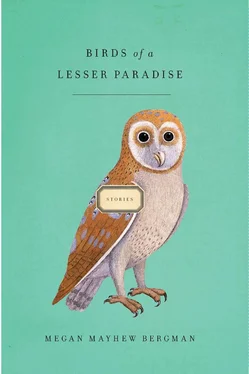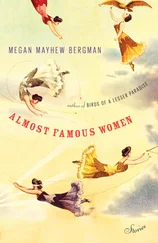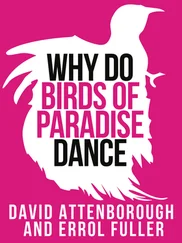Aside from serving in Korea and a short stint living on a houseboat in his twenties, Dad had remained hidden from the world in the swamp, inhabiting the same house, trapping the same illegal lines, fishing the same shallow waters.
We didn’t watch the market or follow politics. That was part of the appeal, for me anyway. For centuries people had used the swamp to hide from their problems. Runaway slaves, ruthless fugitives, shell-shocked soldiers, and cheating wives — all had hidden in the swamp at one time.
When I moved from the city to the swamp, the things I could not have became special again. Cappuccino was special. Driving forty minutes to eat second-rate Indian food was special. Planning a day around the “good” grocery store — special.
You got about half fancy living out of town, Dad told me.
I was a thirty-six-year-old single woman living in a poor man’s theme park, running birding trips into the swamp. Most of my binocular-laden clients were pushing sixty and just as concerned with sunscreen and hydration as they were with spotting a pileated woodpecker. I drove them into the swamp in Dad’s pickup, left them with a map, a bagged lunch, water, a GPS device, and a phone, and picked them up at twilight in a place that seemed less wild every day.
For the most part, I was happy.
Can I offer you some water? I asked Smith, walking toward the main house, the farmhouse in which my father had been born.
What I don’t understand, he said, is how you band a royal tern.
Netting, I said. Fine netting. Or find the juveniles before they flee the nest, which they do, quickly.
I brought Smith into the kitchen. Even though our house was a mess the old juniper paneling made it smell clean.
The downstairs consisted of three rooms. Dad had taken out walls and combined the kitchen and living areas. On the countertops, cups brimmed with pens and cooking utensils. We’d piled old quilts on top of threadbare chairs and sofas for the cats and Dad’s dog, Betsy, to nest in, dirty paws and all. Photographs were tucked into the dusty frames of older pictures. The doorway was lined with mud-caked boots and waders. Coon, fox, and rabbit skins were pinned to the paneling. Dad kept a bulletin board heavy with dried snakeskins, maps, and articles on the ivory-billed woodpecker.
He still believes they exist? Smith said excitedly.
Some days, I said. But most people know they’re extinct. I know.
There are sightings, Smith said. Mostly Florida, right?
They’re just seeing the pileated, I said. Or maybe a sapsucker. People catch sight of a big bird like that and they see what they want to see.
At that moment, Dad came in. As he opened the door, the maps and clippings on his bulletin board flapped wildly.
Who’s this? he said.
Smith extended his hand.
Smith Jones, he said. Bird enthusiast.
If you like birds, Dad said, moving toward his computer, you’ll love this video.
Dad had just discovered the Internet. He pulled up a clip that set the ardent mating displays of birds of paradise in New Guinea to Michael Jackson’s “Billie Jean.”
The birds, dripping in vibrant plumage, skated across branches, flicked their heads, and called like wild flutes to the heavens. Dad slapped his thighs and his laughter filled the house. His laugh was unmistakable, almost an affront. Smith smiled; he didn’t look uncomfortable.
Want a beer? Dad asked.
Smith nodded.
As Smith brought the bottle to his mouth I noticed his full lips. I imagined them sliding down my neck, grazing the back of my hand. I pressed the cool bottle to my forehead. I had to laugh at myself, the way lust crowded my judgment. Still, I was lonely enough not to take a good-looking stranger for granted. It could be years before one appeared again.
That a spaniel? Smith asked, nodding at Betsy.
Something like that, my dad said. Gun-shy and made of God knows what mutts.
Eyes like a woman, Smith said, reaching down to scratch her chin.
Betsy shoved her tender brown nose into Dad’s thigh. She rarely left his side, except on bird expeditions, when she was crated. She was a slave to her instinct — the spaniel in her needed to flush birds. The woman in her wanted to please my father. Her eyes were a piercing amber, knowing. Dad rubbed her ear, gently pulled a burr from her coat.
What’s this? Smith asked, touching a black-and-white photo on Dad’s bulletin board.
Broken-necked bear, Dad said. Fell from a tree slicked up with honey.
There are hundreds of bears in the swamp, I said. Go in for a few days and you’ll see one, I promise.
Maybe ivory-billed woodpeckers, too, Smith said, raising his eyebrows.
It’s possible, Dad said, his voice quiet and serious.
I shook my head. Not a chance, I said.
I’ve seen one, Dad said. Years ago, when I had been out in the swamp for three days. I had started to feel a part of it, then. I hadn’t spoken to another human being in hours. I was ready for it, know what I’m saying?
Soon it was like listening to two men speak excitedly of buried treasure; their shared enthusiasm was evident. Smith and my father conceived a weeklong expedition in the swamp. If there was an ivory-billed, they would hear it, find it, and record it.
There’s a reward, Smith said, scanning a site he’d pulled up online. Fifty thousand bucks.
Nothing short of three days in the heart of the swamp will do, Dad said.
While we’re at it, I said, why don’t we look for unicorns? Get excited, Smith said. It could be the definitive canvas of the Great Dismal. We could know for sure.
We already do, I said. There’s no question. They’re gone. It’s possible, Smith said. Give us that.
It’s not, I said.
Don’t be a black cloud, honey, Dad said.
It always sucked to be the realist.
I put out olives, crackers, and a block of cheese for supper. Dad passed out a second round of beer.
Eventually Dad excused himself; he liked to read for an hour before going to bed. I dug out the Scrabble board and unfolded it on the floor.
You play? I asked.
I will, Smith said.
He sat cross-legged on the floor, his beer beside him. He cocked his head to study the board before laying down his letters. He wasn’t clean-shaven; his whiskers were ash blond and gave him an innocent look.
I flipped on the radio; the silence was too provocative. Dad kept it on the oldies station — he loved Motown — but lately it had occurred to me that the men singing these songs, these songs Dad and everyone else had been listening to as long as I could remember—“I’ll Be Around”; “Be Young, Be Foolish, Be Happy”; anything by Ben E. King — were dead or dying. These men could sing about love better than anyone, but now they were long past loving women, and their impotence depressed me.
“Bernadette” by the Four Tops was on. To be Bernadette, I thought. To be a muse, to inspire jealousy, to make a man shout into the microphone: You’re the soul of me .
Another beer? I said, walking over to the refrigerator.
Please, Smith said.
There were interludes of mindless banter between plays. Smith inched closer to me. I noticed the strings tied to his wrist, the tan line on his arms revealed by short sleeves.
L-A-U-P-E-R, he spelled.
As in Cyndi, he said.
Not sure that counts, I said.
Where do you live? I asked. I’ll pick you up in the morning to shop for provisions.
An unfinished neighborhood, he said. Builder put in all the septic, cleared the lots, put up a clubhouse and a pool and built three spec homes, and then — boom — foreclosure.
Did you buy the house? I asked.
What do you think? he said, laughing. Squatter’s rights.
I shook my head. I had no idea what this man was capable of, what his values were. Perhaps he’d known about the reward for an ivory-billed sighting, and that’s why he was here. The swamp was as good a hope as any. My attraction to him was instantaneous, and I worried it was palpable.
Читать дальше












